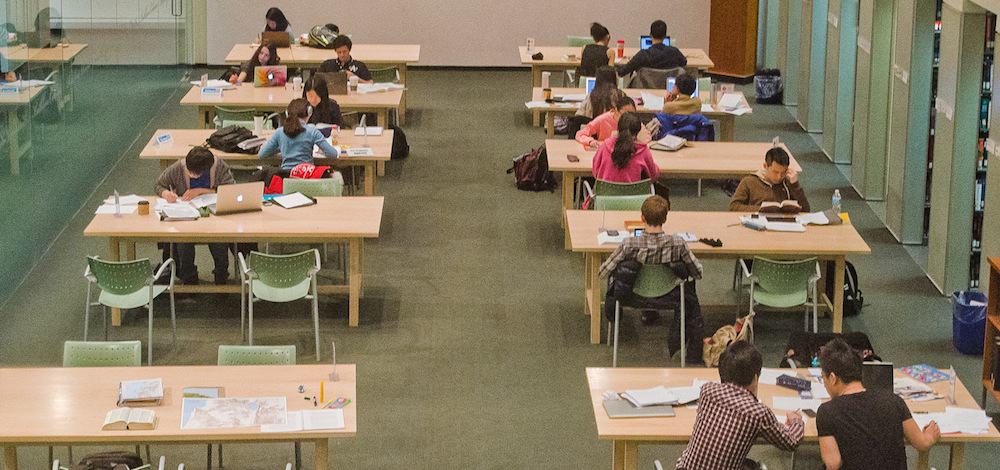April brings not only the start of spring, but for U of T students, the end of the school year and the season of final exams, bringing with it tears, sweat, complaints, and stress with each passing day as our scheduled sitting in the Exam Centre approaches. Feelings of unhappiness, anxiety and physical tiredness commonly accompany the stress prompted by exams, the pressure of sorting out summer housing and a job or internship, and various other concerns. By taking charge of your schedule and your body, however, you can maximize your happiness during the most draining time of the year.
Get some sleep
“Getting enough sleep… is undervalued,” says Dr. Bill Ju of the department of Human Biology. Many students prioritize studying over sleeping during exam time, employing 24-hour study space on campus such as the first three floors of Robarts.
Kat, one of the co-founders of Let’s Talk Health, a student health advocacy group that addresses the issue of mental health on campus, suggests the existence of all-night study spaces implies that it’s “okay” for students not to sleep in favour of continuing to work through the evening hours. “This study space is made for you not to sleep, so that’s fine, you don’t need to sleep — you need to sit down and do your project or study for your test,” she says.
According to information from the Division of Sleep Medicine at Harvard Medical School, sleep helps with the consolidation of memory, in which memories becomes stable in your mind. With lack of sleep comes difficulty in taking in information, reduced ability to access previously learned information, and a reduced ability to make good decisions.
Ju adds, “Students often think that that one extra hour is going to help, but I don’t think it does at all. I would rather see students get that extra hour of sleep and wake up and get ready to write the exam than to go all the way through. I have never seen great results from it.”
Make the time to manage your time
Taking five minutes out of your studying to plan out your day might save you hours of time.
“The time management skill is something you will continue to use throughout your life. It’s a very hard skill to develop,” says Ju. “The biggest thing for me that I would recommend to students is, if you actually sit there and track how much time you’re spending on studying versus distracting yourself so you have to stay up for an extra hour, you’d be surprised.”
He suggests studying in concentrated bursts, taking real breaks — like getting some fresh air, exercising, or chatting with a friend — when needed, rather than going on Facebook, checking email, and surfing the web every five minutes.
Stay on top of your health
During exam season, some of us binge eat, and some of us avoid eating altogether. Eating proper meals and snacks is a productive excuse to take a break from studying. Get your vitamins through eating your fruits and veggies, and your protein to keep you energized through your peanut butter, yogurt, eggs and meat or soy. No matter how busy you feel like you are, your body is a working machine that can’t function without a supply of energy, so your studying will be much more efficient if you munch on some food in the process.
Exercise is also a critical way to stay healthy during exams. Exercise releases endorphins, those feel-good hormones that can help clear up some of your nerves and anxiety and make you feel better. Our city and campus are beautiful in the spring, and running is a perfect opportunity to make your great escape from the stuffy confines of the library and take some alone time to gather your thoughts, listen to some music, breathe fresh air and see the sights of the city.
U of T’s MoveU promotes staying active despite your busy schedule, and provides opportunities for exercise around campus during exam season, such as Brain Break at Robarts in the second week of April — a free event for students with food, yoga, pilates and massages.
Find a support system
“I think it’s impossible to deal with the stress of university alone, without your family and your friends or someone who you can talk to, connect with and just forget about school for a night [with],” says Kat.
When you are held captive in the silence of the library for a day, there is a lot of time for your worries to bottle up in your own head. “Social life is equally as important as academics,” she adds, “It doesn’t mean you have to go out and party every night, but it means that you can take an afternoon off and hang out with friends, or grab a coffee.”
Alternatively, Peers are Here is a U of T mental health service where you can talk to other students about anything that is on your mind. If you find that your anxiety and stress begins to surpass a healthy level and begins to impede on your studies, U of T’s Health and Wellness program offers services such as Counselling and Psychological Services (CAPS), which provides individual counselling, Cognitive-Behavioural Therapy, psychotherapy and workshops.
Get informed
These suggestions towards better handling exam season are often repeated, but not always applied by students. U of T provides programs and services to combat stress but fails to reach out to all students. It’s important to seek out these resources if you’re experiencing stress.
Let’s Talk Health is currently working on an app that provides all the information about services at the touch of your finger. Andrew, the app developer, says, “I think it’s a matter of communicating the resources that are there and making it more accessible for the students to reach the information.”
Some stress is natural, and inevitable. To combat the exam season blues, take advantage of campus resources and do your best to stay organized and healthy. “[E]xams, by nature, are stressful,” adds Ju “It doesn’t matter what the exam is. Everyone is going to have a little bit of stress.”
Streeters: How do you stay happy during exam season?

Nadia | Fourth year
“I’m a runner, so I use that as my escapism from the reality.”

Sabrina | Second year
“I listen to music, watch shows and take small breaks”
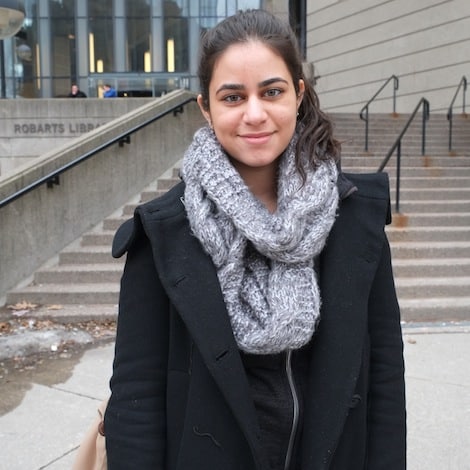
Zeina | First year
“I go to the gym three or four times a week and eat healthy. I still try to go out on the weekends to see friends. Sometimes we study together, which really helps.”
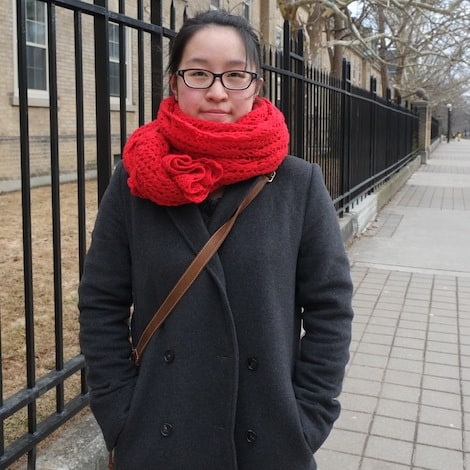
Janice | First year
“I watch some movies before I go to bed and hang out with my friends.”
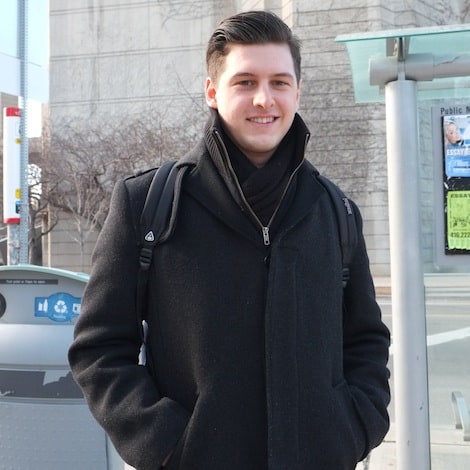
Fancis | Third year
“Just know that it’s temporary. Take your mind off of it from time to time to get you out of the studying mode for a bit — I go play soccer.”

Sean | First year
“I listen to music a lot, watch Netflix, and go out with friends— anything to get away from the work for a bit.”
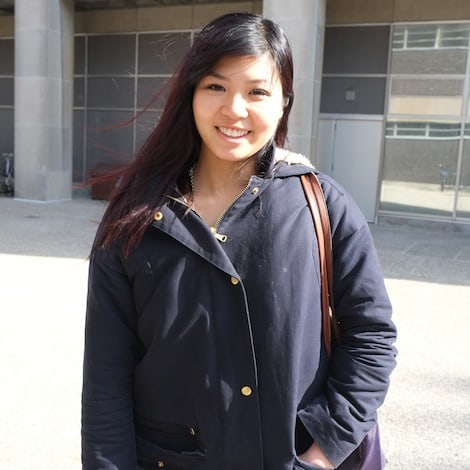
Weisha | Second year
“I’m on the dragon boat team for Rotman Commerce, so we work out at least three days a week, so that’s how I de-stress.”

